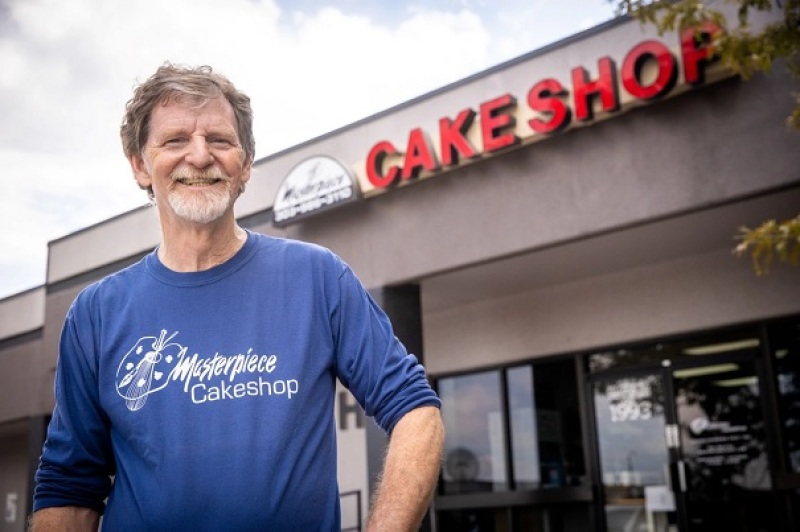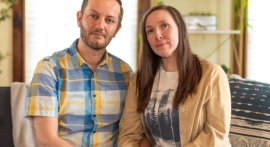
Some Christian academics have condemned a study in an American Psychological Association publication because its findings about legislation that was meant to protect the LGBT community from discrimination didn't mirror reality.
According to the Christian Post, the APA's Journal of Personality and Social Psychology released a research titled "Is LGBT progress seen as an attack on Christians?: Examining Christian/sexual orientation zero-sum beliefs" in January.
The report's findings were drawn from multiple studies, each of which was conducted on five different groups of people. Christians, LGBT individuals, and non-Christians participated in several of the studies.
A team from Washington University in St. Louis, University of Mississippi, University of California-East Bay, and the University of Mississippi took on the task. Led by Clara Wilkins, the group's researchers were Jaclyn Lisnek, Chad Miller, Lerone Martin, and Joseph Wellman.
Baylor University professor George Yancey, whose work whose research was referenced in the study, slammed the authors, accusing them of intentionally misleading readers by cherry-picking just their own favorite pieces of evidence in an interview with Fox News.
Yancey's analysis of the "American National Election Studies" has yielded findings which the researchers claim prove that there's "no evidence of increasing negativity toward Christians over time," and that most Americans' "attitudes averaged from near neutral to positive for fundamentalist Christians."
"They accurately cited that I did not find anti-Christian sentiment increasing but did not cite that I also found that those with anti-Christian sentiment have grown more powerful in society over the past few decades," said Yancey in the interview.
"Needless to say, even if those with anti-Christian attitudes do not increase in numbers, if they increase in power, they have more of an ability to act on their religious bigotry."
Yancey further questioned the report's "lack of control groups," noting that failing to include genuine control groups happens frequently "when scholars assess groups they do not like."
He pointed out that "a lot of concepts such as right-wing authoritarianism and Christian nationalism are true but are presented as if they are unique to conservative Christians."
"Without relevant tests with other social groups, such claims are unfounded. I think the linking of ZSB to Christians by the authors is also premature given the lack of control groups," he said.
The Center for Biblical Worldview's director, David Closson, told Fox News the study offered the latest evidence that "small-o orthodox Christian beliefs on marriage and sexuality are increasingly seen as not just outdated and bigoted, but as subversive and dangerous."
The researchers also ascribed many Christians' apprehension of expanding LGBT rights as eroding religious freedom to a drive to "maintain group dominance."
The report's preface says that while LGBT people have gained rights in recent years, some American Christians believe that LGBT rights restrict their religious freedom.
The authors then claim that traditionalist Christians seek to "relegate sexual minorities to subordinate status - perhaps as a means of reducing their social influence."
This implies that the authors wished to "demonstrate that Christians' beliefs about conflict with sexual minorities are shaped by their understandings of Christian values, social change, interpretation of the Bible, and in response to religious institutions."
In their conclusion, they wrote that "although there have been significant social gains for sexual minorities, those do not likely correspond to increasing bias against Christians, despite some Christians' perspectives."
The researchers utilized hate crime data to back up their claim that Christians account for just 9% of all religion-related hate crimes and 2% of all hate crimes, whereas the LGBT group accounts for 20% of all hate crimes.
Examining Persecution
Even if it stays dormant, the Equality Act has already penalized Christians for addressing sexuality and gender issues within their religious convictions. This reality already contradicts what the APA-published pro-LGBT study tries to push.
Tanner Cross, a P.E instructor in Loudoun County, Virginia, for example, was suspended for violating a policy that mandates instructors to refer to students using the pronouns they choose rather than the ones that correspond to their biological sex. The Supreme Court in Virginia eventually sided with him.
Kelvin Cochran, the Chief of the Atlanta Fire Department, was fired in 2015 because he was involved in a group-authored book that described homosexuality as a "sexual perversion" and "vulgar."
In 2018, the city of Philadelphia blacklisted two Christian foster care agencies because their policies prohibit children from being placed in the homes of homosexual parents.
A Christian florist in Washington is facing legal ramifications after declining to make flower arrangements for a gay wedding on religious grounds. The Supreme Court refused to hear her case this year after lower courts ruled against her.
In 2018, the United States Supreme Court ruled in favor of Colorado Christian baker Jack Phillips, who had been targeted by the state for his refusal to create a personalized cake for a same-sex wedding. He has another case currently pending in court because he refuses to make a cake for a gender transition party.






















